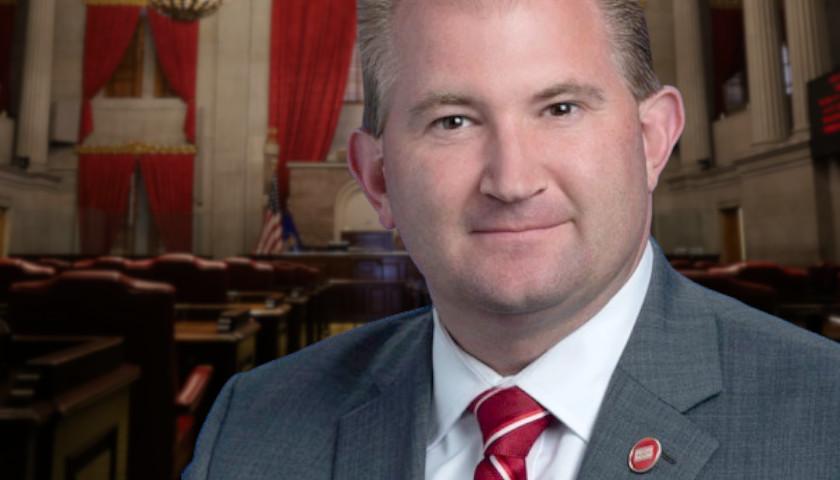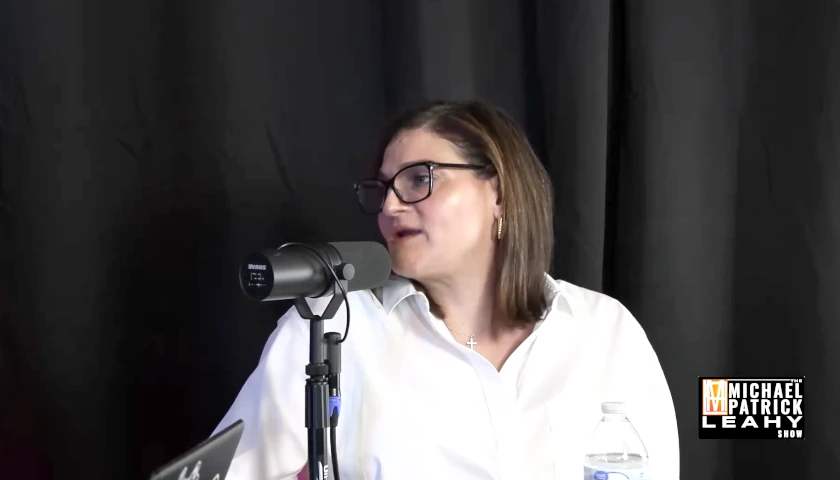Live from Music Row, Wednesday morning on The Tennessee Star Report with Michael Patrick Leahy – broadcast on Nashville’s Talk Radio 98.3 and 1510 WLAC weekdays from 5:00 a.m. to 8:00 a.m. – host Leahy welcomed Tennessee State Senate Majority Leader Jack Johnson to the newsmaker line to clarify the abortion trigger law, third-grade retention bill, and the possibility of direct instruction in K-12 public schools.
Leahy: We welcome to our newsmaker line right now, our very good friend, State Senate Majority Leader Jack Johnson. Good morning, Senator Johnson.
Johnson: Good morning, Michael. Good to be back with you. Happy New Year! I don’t think we’ve spoken in 2023 yet.
Leahy: Happy New Year to you as well. So the Tennessee General Assembly convened in an organizational meeting last week. You picked your leaders. Congratulations on being named State Senate majority leader again. And Randy McNally, of course, Speaker of the state senate, and Lieutenant Governor, and Cameron Sexton was elected as Speaker of the House.
Then you take a break and you come back into session to discuss bills, I think a week from Monday, January 30th. What do you do in this interim period?
Johnson: For some of our new members, it’s time for them to hire staff. And we also have new committee chairmen who have been appointed or perhaps moved to a different committee. The way the process works, you’re right. We have that organizational session. We elect a Speaker.
That Speaker then passes out committee assignments and names the committee chairman for the various committees. And then you need some time for people to move offices, hire additional staff, and then get back to work. Luckily, on the Senate side, Michael, there are fewer of us.
There are 33 Senators versus 99 House members. And so our process is a little simpler. We have three new members of the Senate, and we do have a couple of new committee chairmen. So we’re taking a one-week recess in order to get all of that done.
The House, of course, has more members. It’s a little more complicated. They’re taking two weeks. We all convene this coming Friday in order to prepare for the governor’s inauguration, which will take place on Saturday, and then we’ll reconvene the following Tuesday. The House will come back in a week after us.
Leahy: Okay, so you’re going to get down to business a little bit before the House, in part because there are fewer of you. It looks to me like there are three big bills out there for consideration, probably more, but to me, see if I’ve missed any of the trigger bill after the Roe v. Wade decision on abortion, the third-grade retention bill, and then the new transportation bill that Transportation Commissioner Butch Eley is going to propose. Tell us about the trigger bill. What do you see happening there?
Johnson: The way I like to break it down, Michael, and I think we may have touched on this before, I put it into two lanes. There are two lanes that will be discussed relative to abortion in Tennessee. Lane one is to perhaps clarify the spirit and the intention of what we have on the books now.
What we have on the books right now is an absolute prohibition on abortion in the state of Tennessee, with one very narrow exception, and that is the life of the mother, you might say, too, for substantial reproductive harm. I believe it’s the language that we have on the books.
We have had physicians that have approached us with concerns about the language and whether or not it is clear to protect those doctors who, in their best medical judgment, believe that it is absolutely necessary to terminate a pregnancy in order to save the life of that mother.
I can tell you from my standpoint, I believe most members of the General Assembly, we don’t want that to be unclear. We want that to be clear, whether it’s bringing up examples like ectopic pregnancies and hemorrhages and these various medical conditions that are legitimate and can happen.
I believe that those are consistent with the bill that we passed. It was a trigger bill that became triggered upon the Dobbs case coming down, and so I think we will address that then.
Lane, two, is far more troublesome to me or perhaps concerning, and that is to deal with exceptions for rape and incest and other types of exceptions. And I think it’s important that your listeners and that the people of Tennessee understand those and that we don’t conflate those two lanes.
Lane one is consistent with what we have on the books now, but perhaps may need some additional clarity. Lane two is opening up to allow for more abortions in Tennessee.
Leahy: Okay, well, that clears it up. Let’s talk about third-grade retention. In the last session, you passed a bill signed into law that says third graders if they don’t meet grade-level proficiency standards in the tests they take at the end of third grade, they either have to be held back for a year or go to summer school.
I got two elements of the question on this, Senator Johnson. A lot of parents and some various groups are saying, oh, you’re so mean to do that. It’s going to damage them socially. And so there are people that are saying, well, let’s get rid of that law.
What do you think the reaction of the Tennessee General Assembly is going to be to that complaint depending on where you look at it?
A story today from the Chattanooga Times Free Press, only 38 percent of third graders in the English language are at proficiency levels there. What are your thoughts on that?
Johnson: I’m very supportive of the bill we passed, and it has been dubbed, and I’ve used the term as well, the third grader retention bill. I almost wish we could have come up with a better way to label that legislation.
Michael, the objective of the legislation we passed is not to hold back as many third graders as we possibly can, because we’re mean, as you said, and we have been called that the objective of the legislation is to make sure all third graders can read a grade level before they advance to the fourth grade.
And if we do, our jobs, and I hope that we will, there won’t be many third graders who get retained. We have appropriated hundreds of millions of dollars to go towards additional resources, tutoring, and intervention to identify these kids that are struggling.
And you’re right. Roughly a third, Michael, of our third graders can’t read at grade level. We should be ashamed of that. That is an embarrassing statistic for the state of Tennessee.
You know what the General Assembly did, Michael, that governments don’t typically do? We took bold action. We did something decisive, and it was a big, big decision, and it took a lot of discussions, and it was a heavy lift to get it done.
But what we did is we stuck a flag in the ground. We drew a line in the sand and said, no more. No more. Are we going to allow these third graders to advance to fourth grade, fifth grade, 6th grade, when they can’t read? Every educator in the world will tell you that from kindergarten through third grade, a kid learns to read. After that, they read to learn.
So if you’re funneling these kids through a revolving door up into 4th, 5th, and 6th grade, and they can’t read, they are doomed to fail. And so I have said this, it’s a bit hyperbolic, but if every single third grader needs to repeat the third grade in order to fix this, then we need to do it and have no fourth graders next year.
That’s not going to happen, of course. But we’re not just saying if they can’t read, they’re not going to advance. We’re saying, no, we’re going to stop. We’re going to provide intervention, resources, tutoring, and summer school. We’re going to throw everything, including the kitchen sink, at these kids to make sure they can read, and then they advance, and then they can be successful.
Leahy: Senator Johnson, I agree with the identification of the problem. It’s terrible that only roughly a third of Tennessee K-12 public school students in third grade can read at the proficiency levels for that grade. However, this would be where I would encourage you and other state legislators to think a little differently, to suggest that a K-12 public school system that has failed to get them to be proficient up to third grade, doing the same thing, except more of it next time will fix the problem.
I don’t think that works. My view on this is, and I would encourage you to consider Thales Academy here in Franklin which is part of a national group that uses direct instruction to teach kids how to read, write, and do arithmetic.
It’s been proven for over 60 years. The implementation properly of direct instruction in K-12 public schools will solve this problem. Would you and other state legislators consider the possibility of introducing direct instruction in K-12 public schools here in Tennessee?
Listen to today’s show highlights, including this interview:
– – –
Tune in weekdays from 5:00 – 8:00 a.m. to The Tennessee Star Report with Michael Patrick Leahy on Talk Radio 98.3 FM WLAC 1510. Listen online at iHeart Radio.
Photo “Senator Jack Johnson” by Senator Jack Johnson.






The Education Cartel has already started their push back on this law. It’s being revisited to allow them to be in control of who gets held back. Their goal is no one gets held back and they keep the hundreds of millions of dollars. Kids still do not learn to read but hey, they will better understand how diversity and inclusion will give them more free stuff. I don’t know who is the bigger part of this problem is the Legislators, Educators or the lobbyist paid for by the Cartel.